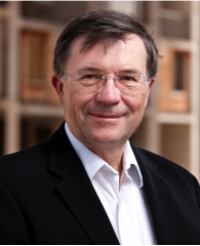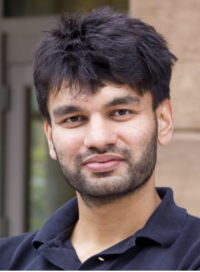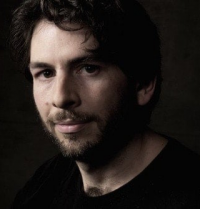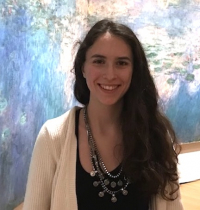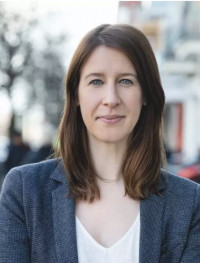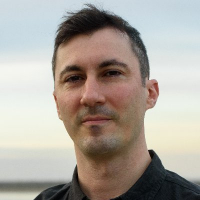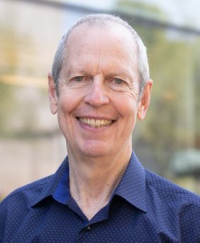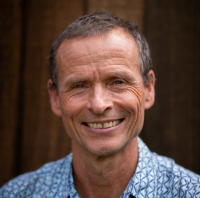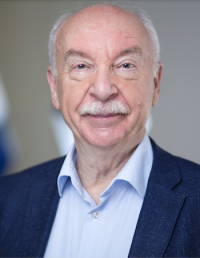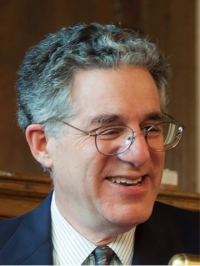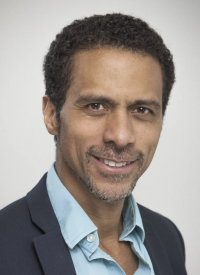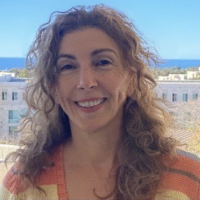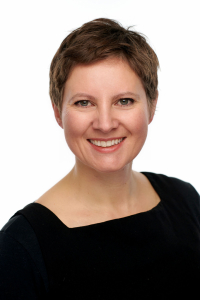Artificial Intelligence and Anthropogeny
Biographical Sketches: Co-Chairs
Salk Institute for Biological Studies
Terrence Sejnowski is a Howard Hughes Medical Institute Investigator and professor and director of the Computational Neurobiology Laboratory at The Salk Institute. He is also professor of biology and an adjunct professor of physics, neurosciences, psychology, cognitive science, and computer science and engineering at UC San Diego. He is director of the Institute for Neural Computation and director of Training Programs in Cognitive Neuroscience and Computational Neurobiology at UC San Diego and serves on the CARTA External Advisory Board. The goal of his research is to build linking principles from brain to behavior using a combination of theoretical and experimental approaches ranging from the biophysical to the systems level. He is founding editor of Neural Computation and President of the Neural Information Processing Systems Foundation. He is a past recipient of the Presidential Young Investigator Award, and was Wiersma Visiting Professor of Neurobiology and a Sherman Fairchild Distinguished Scholar at the California Institute of Technology, and is a fellow of the Institute of Electrical and Electronic Engineers. With Patricia Churchland, he co-authored The Computational Brain (Bradford Books, 1992). He was elected to the Institute of Medicine in 2008, to the National Academy of Sciences in 2010, and to the National Academy of Engineering in 2011. He is one of only ten living persons to be a member of all three national academies.
University of California, San Diego
Patricia Smith Churchland is a neurophilosopher, now retired from the University of California San Diego, and an Adjunct Professor at the Salk Institute. She focuses on how discoveries in neuroscience impact traditional ideas about ourselves and how philosophers can usefully collaborate with scientists. She wrote the pioneering book, Neurophilosophy (MIT Press, 1986), and is co-author with T. J. Sejnowski of The Computational Brain (MIT Press, 1992). Her current work focuses on morality and the social brain: Braintrust: What Neuroscience tells us about Morality (Princeton University Press, 2011) and Conscience: The Origins of Moral Intuition (W. W. Norton & Company, 2019). She won a MacArthur Prize in 1991, the Rossi Prize for neuroscience in 2008, and the Prose Prize for science for Braintrust.
Extended interviews can be found on YouTube, The Science Network, and on Serious Science.
Biographical Sketches: Speakers
Massachusetts Institute of Technology (MIT)
Pulkit Agrawal is the Steven and Renee Finn Chair Assistant Professor in the Department of Electrical Engineering and Computer Science at MIT, where he directs the Improbable AI Lab. His research interests span robotics, deep learning, computer vision, and reinforcement learning. His work received the Best Paper Award at Conference on Robot Learning 2021 and Best Student Paper Award at Conference on Computer Supported Collaborative Learning 2011. He is a recipient of the Sony Faculty Research Award, Salesforce Research Award, Amazon Research Award, a Fulbright fellowship, etc. Before joining MIT, he co-founded SafelyYou Inc., received his Ph.D. from UC Berkeley, and Bachelor's degree from IIT Kanpur, where he was awarded the Directors Gold Medal.
Blaise Agüera y Arcas is a VP and Fellow at Google Research, where he leads an organization working on both basic research and new products in AI. His focus is on augmentative, privacy-first, and collectively beneficial applications, including on-device ML for Android phones, wearables, and the Internet of Things. One of the team’s technical contributions is Federated Learning, an approach to training neural networks in a distributed setting that avoids sharing user data. Blaise also founded the Artists and Machine Intelligence program, and has been an active participant in cross-disciplinary dialogs about AI and ethics, fairness and bias, policy, and risk. Until 2014 he was a Distinguished Engineer at Microsoft. Outside the tech world, Blaise has worked on computational humanities projects including the digital reconstruction of Sergei Prokudin-Gorskii’s color photography at the Library of Congress, and the use of computer vision techniques to shed new light on Gutenberg’s printing technology. Blaise has given TED talks on Seadragon and Photosynth (2007, 2012), Bing Maps (2010), and machine creativity (2016), and gave a keynote at NeurIPS on social intelligence (2019). In 2008, he was awarded MIT’s TR35 prize. In 2018 and 2019 he taught the course “Intelligent Machinery, Identity, and Ethics” at the University of Washington, placing computing and AI in a broader historical and philosophical context.
California Institute of Technology
Carmen Amo Alonso is a Ph.D. Candidate in Control and Dynamical Systems at the Department of Computing and Mathematical Sciences at Caltech, where she works under the advice of Prof. John Doyle. Broadly, her research focuses on robust and distributed optimal control for large-scale networks, as well as in and the applications to computational linguistics and biology.
Max Planck Institute for Brain Research
Alison Barker is a Research Group Leader at the Max Planck Institute for Brain Research in Frankfurt, Germany. Her group employs a broad evolutionary approach to investigate the links between vocal communication and cooperation. A key area of interest is in mapping the neural circuitry for complex social behaviors. Currently the lab uses the naked mole-rat as a model to investigate the evolution of neural mechanisms for the processing and production of socially meaningful vocal cues.
Harvard University
Damián Blasi is a Harvard Data Science Initiative Fellow, a Branco Weiss Fellow, and a recipient of the 2019 Glushko Prize in Cognitive Sciences among other honors. He is currently a researcher at the Culture, Cognition, and Coevolution Lab based at the Department of Human Evolutionary Biology at Harvard University. In addition, Blasi is a research affiliate of the Department of Linguistic and Cultural Evolution at the Max Planck Institute for the Science of Human History in Jena (Germany), and at the Human Relations Area Files (Yale University). He currently serves as a member of the UNESCO expert committee of the World Atlas of Languages. He received a Ph.D. in Computer Sciences from the Max Planck Institute for Mathematics in the Sciences and a B.Sc. in Physics and M.Sc. in Interdisciplinary and Statistical Physics from the Balseiro Institute in Bariloche (Argentina).
California Institute of Technology
John Doyle is the Jean-Lou Chameau Professor of Control and Dynamical Systems, Electrical Engineering, and Bioengineering at California Institute of Technology. His research is on theoretical foundations for complex tech, bio, med, neuro, and social networks integrating control, communications, computing, and multiscale physics. Layered architectures such as brains integrate high level planning with fast lower level sensing, reflex, and action and facilitate learning, adaptation, augmentation (tools), and teamwork, despite being implemented in energy efficient hardware with sparse, quantized, noisy, delayed, and saturating sensing, communications, computing, and actuation, on time scales from milliseconds to minutes to days. We are developing a mathematical framework that deals with all of these features and constraints in a coherent and rigorous way with broad applications in science, technology, ecology, and society.
UC San Diego
Pascal Gagneux is CARTA's Executive Co-Director, a Professor of Pathology and Anthropology, and the Department Chair of Anthropology at UC San Diego. He is interested in the evolutionary mechanisms responsible for generating and maintaining primate molecular diversity. The Gagneux laboratory studies cell-surface molecules in closely related primates species. His focus is on glycans, the oligosaccharides attached to glycolipids and glycoproteins of the surfaces of every cell and also secreted into the extra-cellular matrix. Gagneux's laboratory is exploring the roles of molecular diversity in protecting populations from pathogens as well as potential consequences for reproductive compatibility. Dr. Gagneux’s interest is in how glycan evolution is shaped by constraints from endogenous biochemistry and exogenous, pathogen-mediated natural selection, but could also have consequences for sexual selection. Dr. Gagneux has studied the behavioral ecology of wild chimpanzees in the Taï Forest, Ivory Coast, population genetics of West African chimpanzees, and differences in sialic acid biology between humans and great apes with special consideration of their differing pathogen regimes. In 2011, while Associate Director of CARTA, Dr. Gagneux helped to establish a graduate specialization in Anthropogeny at UC San Diego. This wholly unique graduate specialization is offered through eight participating graduate programs in the social and natural sciences at UC San Diego.
Max Planck Institute for Human Development
Gerd Gigerenzer is Director of the Harding Center for Risk Literacy, University of Potsdam, and Director emeritus at the Max Planck Institute for Human Development. He is former Professor of Psychology at the University of Chicago and John M. Olin Distinguished Visiting Professor, School of Law at the University of Virginia. He is Member of the Berlin-Brandenburg Academy of Sciences, the German Academy of Sciences, the American Academy of Arts and Sciences and the American Philosophical Society. Awards for his work include the AAAS Prize for the best article in the behavioral sciences, the Association of American Publishers Prize for the best book in the social and behavioral sciences, the German Psychology Award, and the Communicator Award of the German Research Foundation. His award-winning popular books Calculated Risks, Gut Feelings, Risk Savvy and How to Stay Smart in a Smart World have been translated into more than 20 languages. His academic books include Simple Heuristics That Make Us Smart, Rationality for Mortals, Simply Rational, and Bounded Rationality (with Reinhard Selten, a Nobel Laureate in economics). Gigerenzer has trained U.S. federal judges, German physicians, and international top managers in decision making. The Swiss Duttweiler Institute has distinguished Gigerenzer as one of the top-100 Global Thought Leaders worldwide.
Photo © 2023 Arne Sattler
Tufts University/Massachusetts Institute of Technology
Ray Jackendoff is Seth Merrin Professor Emeritus and former co-director of the Center for Cognitive Studies at Tufts University. He is currently a Research Affiliate in Brain and Cognitive Sciences at MIT. He has written widely on syntax, semantics, the architecture of grammar, the evolution of language, music cognition, social cognition, and consciousness. He was the recipient of the 2003 Nicod Prize in Cognitive Philosophy and the 2014 David E. Rumelhart Prize for Outstanding Contributions to the Theoretical Foundations of Human Cognition, as well as five honorary degrees. His books include Semantics and Cognition (1983), A Generative Theory of Tonal Music (with Fred Lerdahl) (1983), Consciousness and the Computational Mind (1987), Foundations of Language (2002), A User’s Guide to Thought and Meaning (2012), and The Texture of the Lexicon (2020).
Rockefeller University
Erich Jarvis is a Professor of neurobiology and genomics at the Rockefeller University in New York, and with the Howard Hughes Medical Institute. He uses innovative research techniques to study what songbirds and other species can help reveal about the evolution of human language and its disorders. His work thus far has resulted in some compelling hypotheses, including: establishing a close anatomical similarity in the brain mechanisms that control vocal communication in songbirds and humans. Erich graduated from Hunter College in New York City with a bachelor's degree in Biology and Mathematics and later earned his Ph.D. Neurobiology and Animal Behavior from Rockefeller University. He continued as a postdoc at Rockefeller, before becoming an Assistant Professor at Duke University. He later returned to Rockefeller as a full professor, where he presently does his research. Erich is the recipient of many awards and honors for his achievements, including: one of the highest awards given by the National Institutes of Health (NIH) -- the NIH Director's Pioneer Award, and one of the highest given by the National Science Foundation (NSF) -- the NSF Alan T. Waterman Award. He is also a research investigator of the prestigious Howard Hughes Medical Institute, and recently received an NIH transformative R01 award. Future efforts are focused on testing hypothesis of vocal learning evolution in mice.
UC San Diego
Katerina Semendeferi is Professor of Anthropology and Director of the Laboratory for Human Comparative Neuroanatomy at UC San Diego. She is CARTA Co-Director and elected fellow of the American Association for the Advancement of Science. Semendeferi’s studies of the fronto-limbic circuitry showed that the relative size of the frontal cortex is remarkably similar across apes and humans and that evolutionary changes are found in some, but not all, regions of the human frontal lobe and amygdala. Her laboratory explores links between the phylogenetically reorganized brain regions and vulnerabilities observed in atypical human neurodevelopment (Autism and Williams Syndrome). Semendeferi has been involved with multiple lines of research in human evolution, including the fossil record, and pioneered the application of noninvasive imaging tools to the study of the brain of the apes. She maintains an interest in bringing together multiple fields of inquiry including efforts to bridge classical quantitative neuroanatomy with the field of induced pluripotent stem cells and brain organoids.
Central European University, Vienna
Eva Wittenberg is an Associate Professor in the Department of Cognitive Science at the Central European University in Vienna, Austria. She received her Ph.D. in Linguistics from Potsdam University (Germany), and her postdoctoral training at UC San Diego, where she also held a faculty position before moving to CEU. The aim of Eva's research is to understand the architecture of the language system within broader cognition, asking fundamental questions about the interaction of grammar, meaning, and broader cognitive processes. This includes how linguistic structure maps onto conceptual structure, and, most relevant to this symposium, how this mapping came to be.
